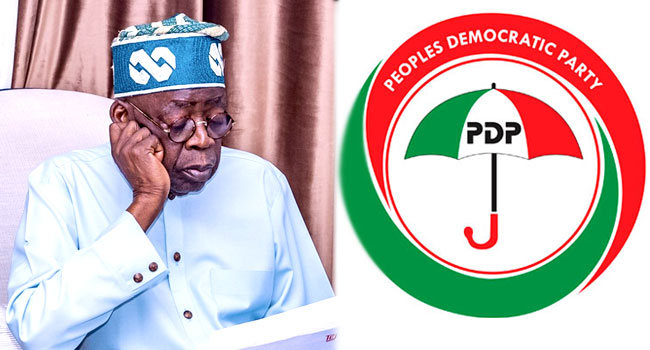The Evolution of Football Shirt Sponsors: From Beer to Betting
There was a time when English football clubs proudly displayed logos from iconic household brands on their shirts. These were the companies that had direct ties to the UK and were looking to sell their products to fans in the stands. However, those days have long since passed, and the football shirt sponsorship landscape has undergone a dramatic transformation. The Premier League, now a global spectacle with a massive audience, has seen an influx of sponsors that are far removed from the UK market and often aren’t aiming to sell products directly to football fans.
In the past, it was unthinkable that clubs would sport logos from companies that didn’t even operate within the UK. Fast forward to today, and many of the companies that now sponsor Premier League shirts are not even trying to sell anything to UK consumers. Instead, the focus is on global reach and brand visibility in a market that spans millions of fans across continents. The rise of gambling sponsorships is one of the more striking examples of this shift.
As the Premier League evolves, it has become more about business, visibility, and international markets than selling physical products to local customers. The statistics behind sponsorship deals show a marked increase in the involvement of gambling firms. For the 2024-25 season, Premier League clubs with gambling-related shirt sponsorships are expected to rake in a combined total of £101.1 million ($135.43 million). In total, 11 clubs feature gambling sponsors on their shirts, an increase of three clubs from the previous season.
In contrast to the past, when sponsorship deals were more localized, with clubs sporting logos of nearby businesses, the modern landscape is dominated by international companies with little to no presence in the UK. In fact, only one club—Liverpool—features a sponsor headquartered within 1,000 miles of the club's location. Three decades ago, the average distance between a club and its sponsor was 1,859 miles; today, it is more than double that at 4,431 miles. This dramatic shift has coincided with the global expansion of the Premier League's influence, and the rise of technology and other global industries as the new dominant sponsors.
In the early 1990s, many of the companies sponsoring Premier League clubs were based in the UK, and they were looking to sell products directly to British consumers. Brands like JD Sports, for instance, had a direct link to football fans and sold physical products. However, as the Premier League became a global powerhouse, it also attracted a new breed of sponsors. The globalisation of the sport, coupled with technological advancements, allowed companies from far-flung countries to make their mark. For instance, Middle Eastern conglomerates are now major players in sponsorships, reflecting the shift in the balance of economic power towards new financial strongholds. These companies are no longer just after local visibility; they are targeting global audiences in markets where football’s influence is massive.
This shift is not limited to just the Premier League. Across Europe, gambling companies have emerged as some of the most significant sponsors in the sport. UEFA, which governs European football, signed its first formal gambling sponsor only last summer. Other European leagues, including those in Belgium, Greece, Hungary, the Netherlands, Poland, Portugal, and Russia, have also seen a surge in gambling-related sponsorships. It’s become a dominant force in the world of football sponsorship.
In the UK, the Premier League itself does not have an official gambling partner, but gambling advertisements have become synonymous with football. Research shows that during the opening weekend of the current Premier League season, gambling ads were shown more than 29,000 times, a significant increase from the previous year. This reflects how inextricably linked the gambling industry has become to the world of football. The industry’s presence in football has not been without controversy, particularly given the targeting of young male audiences, who are most likely to develop gambling problems.
The prevalence of gambling ads is significant. According to the UK Gambling Commission, gambling firms earned a staggering £15.1 billion in revenue between April 2022 and March 2023, providing them with ample funds for advertising. The sponsorship model is shifting as gambling companies increasingly target international markets, with a focus on regions like Asia. Companies based in tax havens such as Curacao and Malta have leveraged football sponsorships to reach customers in areas like China, where gambling is illegal. They do so through various loopholes, such as VPNs, bypassing the restrictions imposed by the Chinese government.
The push for global sponsorships has also resulted in a scenario where some UK football fans are exposed to gambling ads even if they can’t place bets with certain sponsors. The sponsors themselves, while unable to accept UK bets, still benefit from the massive exposure that comes with being associated with the Premier League. This leads to concerns about how this influences British spectators, many of whom may start betting even if they can’t directly engage with a specific company.
As gambling sponsorships continue to dominate, some clubs have begun to question the long-term implications for the sport. Despite the increasing reliance on gambling firms, the Premier League has introduced measures to curb gambling-related sponsorships. A ban on front-of-shirt gambling sponsors is set to take effect by the 2026-27 season. Yet, even with this looming restriction, there’s skepticism about its true impact. Some believe that gambling companies will simply shift their advertising to other areas, such as pitchside hoardings or shirt sleeves.
For the clubs themselves, especially those in the lower tiers, the financial incentive of gambling sponsorships is hard to ignore. The wealthier Premier League clubs—like Arsenal, Chelsea, Liverpool, and Manchester United—have so far avoided gambling firms as sponsors, but for the teams further down the table, the lure of additional revenue is too significant. Gambling firms can sponsor clubs with lower-profile players and less global recognition, allowing them to establish a presence in the league without paying the premium fees that come with sponsoring the top teams.
For many of these lower-tier clubs, the chance to secure a lucrative sponsorship deal with a gambling firm is essential, as it helps to offset the financial challenges posed by relegation risks and the accompanying loss of television revenue. The Premier League’s dominance in global sport has allowed gambling companies to gain access to an incredibly valuable platform for their marketing efforts.
As the landscape of football sponsorship continues to evolve, it is clear that gambling firms are here to stay. Whether or not they continue to dominate the front of Premier League shirts or shift their focus elsewhere, one thing is certain: gambling has firmly entrenched itself in the fabric of modern football, shaping not only the financial future of clubs but also the nature of the sport itself.
4/21/2025, 2:33:03 PM
views 15037
708







